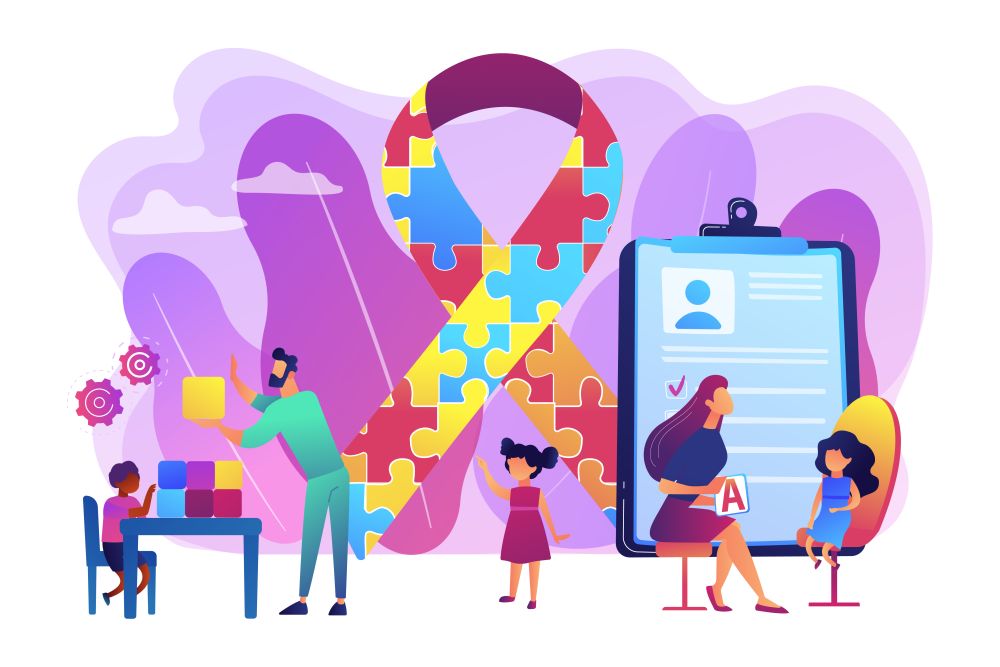CDC Reports 1 in 36 Children Diagnosed with Autism, Signals Growing Need for Speech Therapy
Setting off alarms to healthcare payers, providers and patients/families nationwide, the most recent findings from the Centers for Disease Control and Prevention (CDC) Autism and Developmental Disabilities Monitoring (ADDM) Network was released in March 2023: based on data from 8-year-olds in 2020, 1 in 36 children were identified with autism spectrum disorder (ASD). This signals a high increase in comparison to 1 in 150 children who were estimated to have ASD in 2000. ADDM points to a need for greater disease awareness and enhanced infrastructure to provide equitable diagnostic, treatment and support services for all children with ASD.
The number of children who are identified is estimated to climb given the recommendation from the American Academy of Pediatrics (AAP) that all children be screened for ASD at ages 18 and 24 months, along with regular developmental observation.
Furthermore, AAP advocates that toddlers and children should be referred for diagnostic evaluation when increased risk for developmental disorders (including ASD) is identified through screening and/or surveillance. Children should be referred for intervention for all identified developmental delays at the time of identification and not wait for an ASD diagnostic evaluation to take place.
Speech Therapy for Children Diagnosed with Autism Spectrum Disorder
For years, the medical and scientific communities have advised that almost anyone diagnosed with ASD should be recommended for speech and language therapy. Today, given the climbing rates of autism across the country, this is an important recommendation as many autistic children have limited or compromised speech and may need help in forming words and sentences.
In fact, the CDC advises that the most common developmental therapy for children with ASD is Speech and Language Therapy which helps to improve the child’s understanding and use of speech and language. Some people with ASD communicate verbally, while others may communicate through the use of signs, gestures, pictures or an electronic communication device.
The number of children identified with ASD calls for improved access to speech therapy. Great Speech offers a virtual solution that is scalable to serve large, geographically diverse populations and readily available via an Internet connection. Our online virtual speech therapy solution is powered by a team of certified speech and language pathologists (SLPs) – also known as speech therapists – who are specially trained in addressing the communications issues associated with ASD and stand ready to close these gaps in care for kids with autism.
Language Development Needs Differ
Many children diagnosed with autism receive early intervention treatment. SLPs can help children develop pre-language skills, such as eye contact, gestures and other vocalizations to help them communicate.
Language development varies widely among children with ASD. Some children talk at an early age and speak effortlessly while others have delayed speech and are less communicative. While these differences in social communication or ability to express their wants and needs are characteristic of ASD, as the CDC suggests, many children with ASD will benefit from some form of speech-language therapy.
Speech therapy can help children to improve their verbal, nonverbal, and social communication, with benefits that go beyond speaking or self-expression. Speech therapists can play a major role in helping an autistic child learn to communicate and engage with other people. The exact services a child requires are determined after evaluation by an SLP.
The Cleveland Clinic points to these examples of speech therapy activities:
- Tongue and mouth exercises: A speech therapist will show the individual exercises and motions that will strengthen the mouth and tongue. These exercises help train the tongue to move in coordinated patterns.
- Facial movements: Controlling facial expression can help to improve motor skills. A therapist might ask the child to smile or pucker their lips, then relax the face.
- Reading out loud: When a speech disorder prevents the child from moving his/her mouth and tongue properly, reading out loud can strengthen the connection between the brain and mouth.
- Playing word games: Studies have shown that memory games, word searches and crossword puzzles can maintain cognitive function and improve thinking skills.
To learn more about online speech therapy for children and adults who are diagnosed with ASD, contact Great Speech and schedule an introductory call today.
